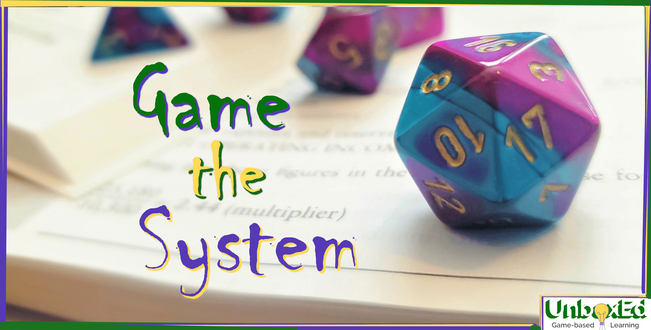How can I get UnboxEd in my kid's school?
|
Hop over to our Enrollment page.
|
Does UnboxEd work for remote learners?
|
Not at this time. Besides the loss of tactility and the beautiful art these games provide, we work in-person in the afterschool setting to help re-socialize students who have experienced cognitive and emotional setbacks during the pandemic. However, we can create custom programming with out-of-school pods and youth groups. Enroll Here.
|
Explain in more detail what a narrative RPG is.
|
The most familiar example is Dungeons & Dragons. Like board games, tabletop RPGs have experienced their own resurgence with a diversity of themes and systems. Players build and grow characters with customizable stats, skills, personalities and roles. The Game Master leads them through various adventures by verbally narrating each scene, adding detail, maps, characters, treasure, dialogue and challenges, while using player reactions to better guide the story toward what players find most fun. The gameplay allows players to debate, negotiate, plan, learn new skills, and explore vast worlds and personal identities. Simply, narrative RPGs are equal parts imagination and communication.
|
What is an avatar?
|
An avatar is a fancy name for the character that each player creates and identifies with in a game world. We love avatars because it gives kids an alter-ego with which to express, experiment, and aspire.
|
Aren't games sometimes competitive and violent?
|
This is a valid question and concern. Have a look at this very long and thorough blog post.
|
Is all this art from games featured in the program?
|
Yup. Credit and thanks to Matagot, Roxley, Czech Games, Plan B, North Star, Libellud, Funko, Burnt Island, Stronghold, and momatoes for all the beautiful -- and playable -- art included on the site.
|
What is your background and what sets you apart from other programs?
|
We like to think of ourselves as EdTac(tile), not EdTech. We draw on our skills as creative writers, game designers, non-profit consultants, and parents, along with a decade of experience as elementary general Ed and Special Ed educators.
We use game-based learning to build a novel system around research and content -- as opposed to 'assimilating' research and content into an overstuffed system. Plus, we aren't burdened by administrative and regulatory bloat. We pass that freedom along to our students. Our Theory of Change is summarized in 3 main values: Agency, Abstraction, and Additive Feedback. Visit the link to read more about our Guiding Principles. Or check out our media appearances for a deeper dive into our background and philosophies. |
What educational gaps are you trying to address?
|
Curriculum in public schools has been stripped down to cover only the lowest common denominator of skills. Students are treated like business outcomes, creating Minimum Viable Products that get swept through the system. At-risk, creative, and socially under-developed children fall through the cracks. Too many come away with an incomplete view of what education can be.
Gifted students are bored because the work isn’t challenging; disadvantaged students are unmotivated because the work is too challenging for them yet so easy for their “book-smart” peers; and average students lash out because the other tiers command much of the attention. Creative thinkers are neglected and low-income students often can’t connect with the college path because they have fewer models in their lives demonstrating how education translates to success. Programs like Gifted & Talented, leadership nominations and tutoring have shown mixed results, while disadvantaged schools desperately lack engaging options. The best research coming out of the space shows that quality afterschool programs, especially for low-income populations, increase attendance, math and reading scores, behavior outcomes and graduation rates. Further, small group learning is the optimal way to achieve sustained results. |
You mention a lot about reward systems, incentives, mega-game, meta-game. What do those mean and how exactly are they implemented?
|
Proper feedback is crucial. Research shows that cultivating engagement and reducing stress results in better comprehension and longer retention of information. We focus a lot of time and energy on developing systems of feedback and rewards that highlight a student's strengths and work around their weaknesses. In games this is called "min/maxing", and its how much of the adult world works too.
Luckily, games have tons of positive feedback systems embedded within them. We supplement these with a token economy that students can use to design their own game or trade outside of the group (meta-game), and additive scoring (points only go up, never down). A mega-game is a way we connect all of our groups together. Throughout the semester, we design a macro game that each group participates in and evolves as a team. |
What is your refund policy?
|
Refunds are pro-rated beginning the first full month after the cancelation.
|
What are your behavior policies?
|
View them here.
|

